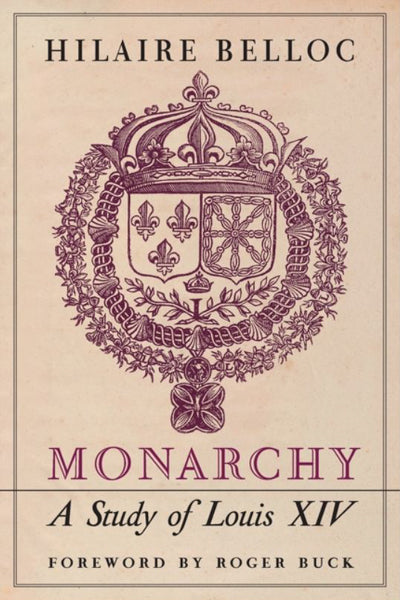
Monarchy: A Study of Louis XIV
U.S. Delivery in 5-10 business days.

Monarchy or Plutocracy? This is the rousing question Hilaire Belloc placed before his readers in this masterly 1938 work. Belloc, grown old, saw the revolutionary dreams of his youth were naive. The great liberal insurrections, which supposedly led to Democracy, had yielded instead to secretive control by shadowy Capitalistic elites. As provocative as this thesis was in 1938, many today harbour similar suspicions of entities as varied as Wall Street, Washington, the European Union and the World Economic Forum. Could the only answer be Catholic Monarchy, which naturally favours Distributism and a true democratic spirit? Pondering these pages, today's readers may well wonder!
While this book tells the story of France's "Sun King," Louis XIV, it is not simply biography. Rather, it is a study of the mysterious nature of Monarchy. Moreover, Belloc stresses what "is central to this study ... is the natural conflict between Monarchy and the Money-power."
For in Seventeenth Century France, Louis XIV combatted the new financial elites with a certain success-unlike his Stuart cousin James II, the last Catholic king of England, who fell before the power of Protestant monied interests. Here is an epic tale, wherein Capitalism triumphed in the emerging Anglosphere, while a flawed, French King chose instead "a road less travelled." Here, too, is a profound Catholic meditation on matters as diverse as French royalty, European tradition, economic justice and the hidden roots of plutocratic Globalism.
This edition features an extensive foreword by Roger Buck, which penetrates Belloc's life and thought, while clarifying French history for the benefit of modern readers.